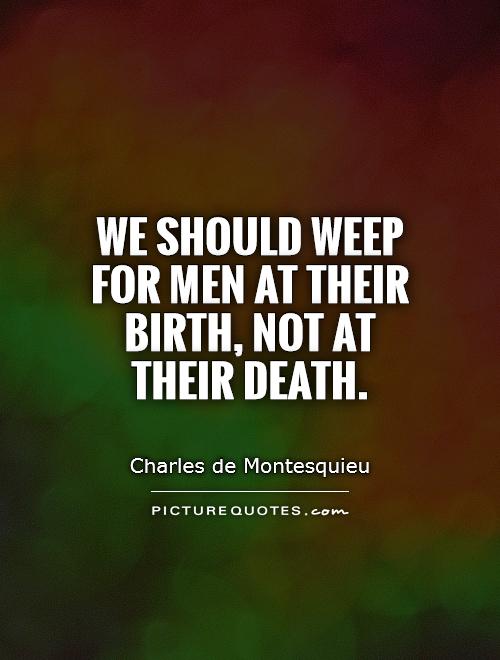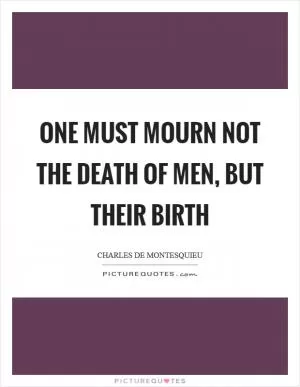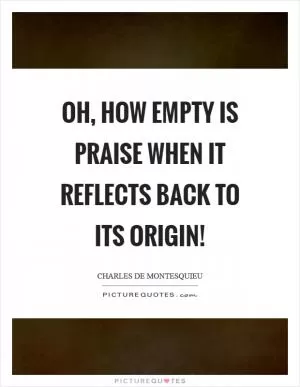We should weep for men at their birth, not at their death

We should weep for men at their birth, not at their death
Charles de Montesquieu, a French philosopher and political thinker, once said, “We should weep for men at their birth, not at their death.” This profound statement holds a deep meaning and sheds light on the importance of the early stages of a person's life. Montesquieu believed that the circumstances of one's birth greatly influence their future and shape their character and destiny.When we think about this quote in the context of Montesquieu's words, we can interpret it as a call to pay attention to the conditions in which individuals are born and raised. The environment, family, and social factors that surround a person from the moment they enter the world can have a lasting impact on their development and opportunities in life. By weeping for men at their birth, we acknowledge the challenges and obstacles they may face and strive to create a more equitable and supportive society for all individuals.
Montesquieu's words also remind us of the fragility and vulnerability of newborns. At birth, every person is a blank slate, with endless potential and possibilities ahead of them. It is a time of innocence and purity, free from the burdens and complexities of the world. By weeping for men at their birth, we recognize the preciousness of life and the responsibility we have to nurture and protect the next generation.
On the other hand, weeping for men at their death may seem like a natural response to loss and grief. However, Montesquieu's words challenge us to shift our perspective and focus on celebrating the life that was lived, rather than mourning its end. By honoring the journey and experiences of individuals throughout their lives, we can find solace and meaning in the face of death.












 Friendship Quotes
Friendship Quotes Love Quotes
Love Quotes Life Quotes
Life Quotes Funny Quotes
Funny Quotes Motivational Quotes
Motivational Quotes Inspirational Quotes
Inspirational Quotes